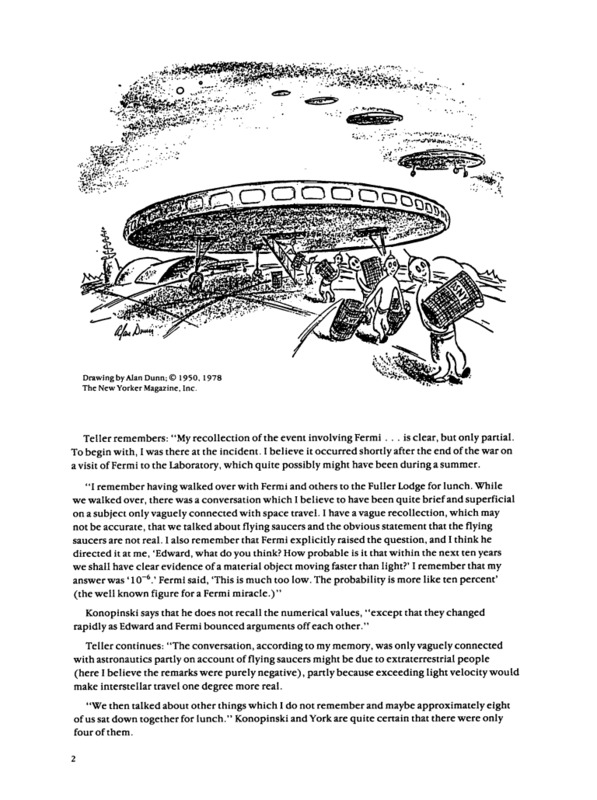The Fermi Paradox
The Fermi Paradox is the argument that the possibility of there being other forms of intelligent life in the universe is almost inevitable (Jones, 1985). It is named after the Italian-American physicist Enrico Fermi; his basic idea was trying to compare the lack of evidence of extraterrestrial life and the large probability of there being extraterrestrial life elsewhere in the universe. The Fermi Paradox is based on a function of the scale of the universe and the argument of the probability of life to survive and adapt to different habitats (Jones, 1985). There are many ways to argue the paradox, but there are two parts to the question of the Fermi Paradox. The first is “why are there no extraterrestrials found on earth?” The second is “why are there no signs of extraterrestrial life found in the universe” (Jones, 1985).
This idea, while it is named after Enrico Fermi, was actually published by Eric Jones after Fermi’s death. The idea of the paradox was talked about by Fermi and three other scholars over lunch (Jones, 1985). Jones collected the accounts of Teller, Konopinski, and York. His publication of “Where Is Everybody?” An Account of Fermi’s Question outlines the conversations between the scholars, as told through written accounts by everyone present and how the conversation turned from a superficial open question to the idea that we now know as Fermi’s Paradox. It could be said that his publication has called many conspiracy theorists to action in finding any form of evidence of extraterrestrial life on earth.
Jones, Eric M. “''Where Is Everybody. '' An Account of Fermi's Question.” ''Where Is Everybody. '' An Account of Fermi's Question (Technical Report) | OSTI.GOV, 1 Mar. 1985, www.osti.gov/biblio/5746675.
